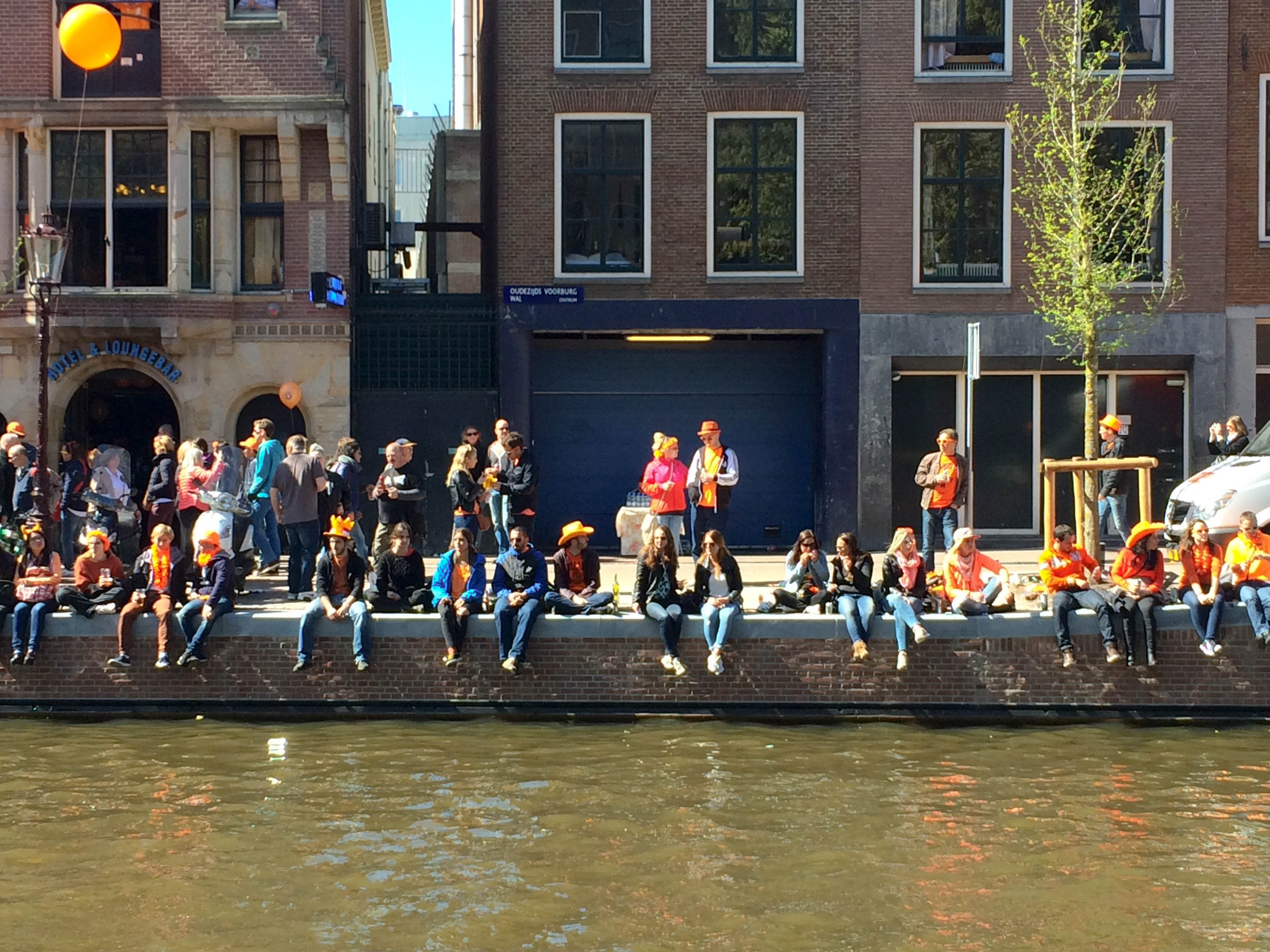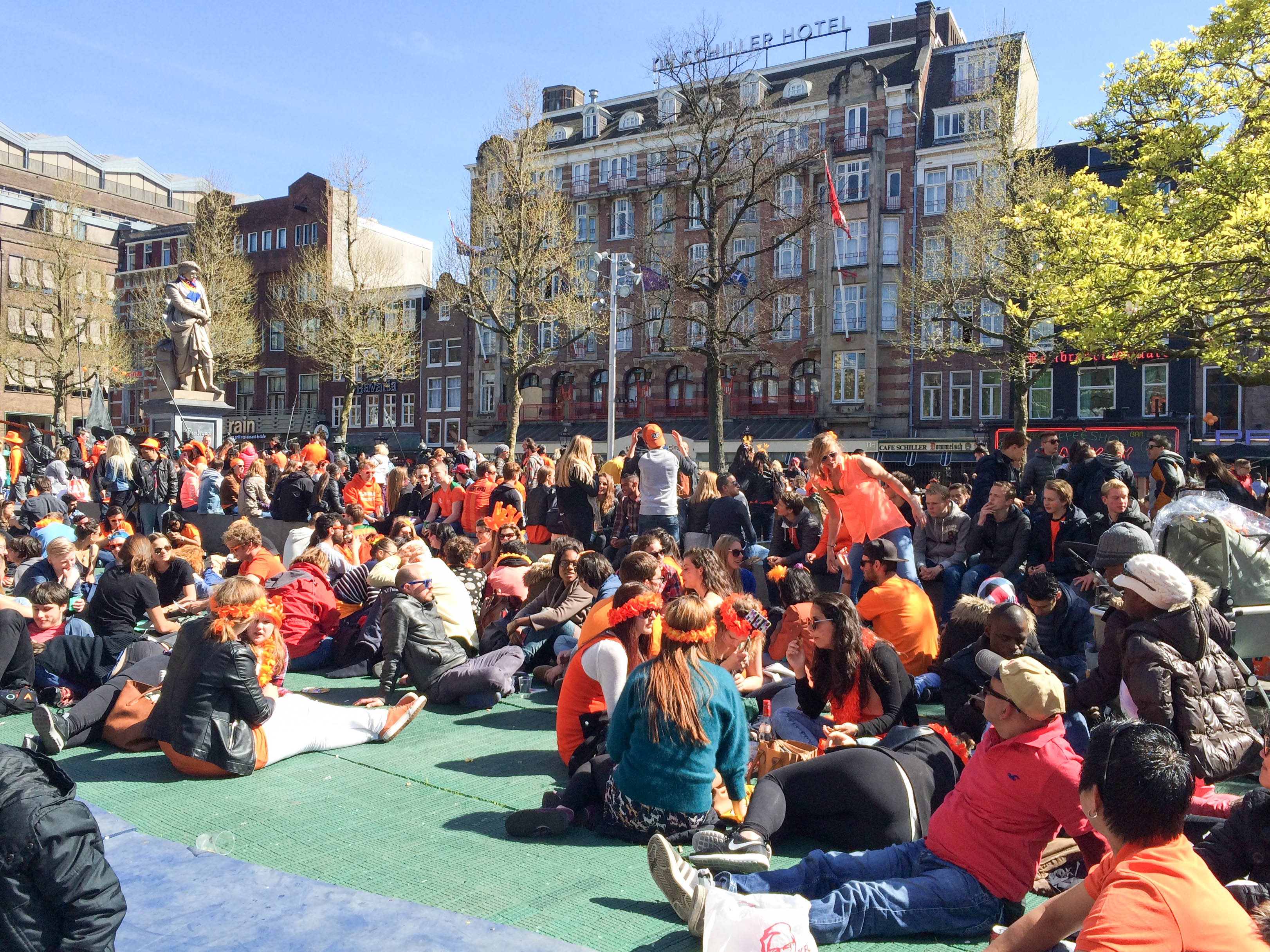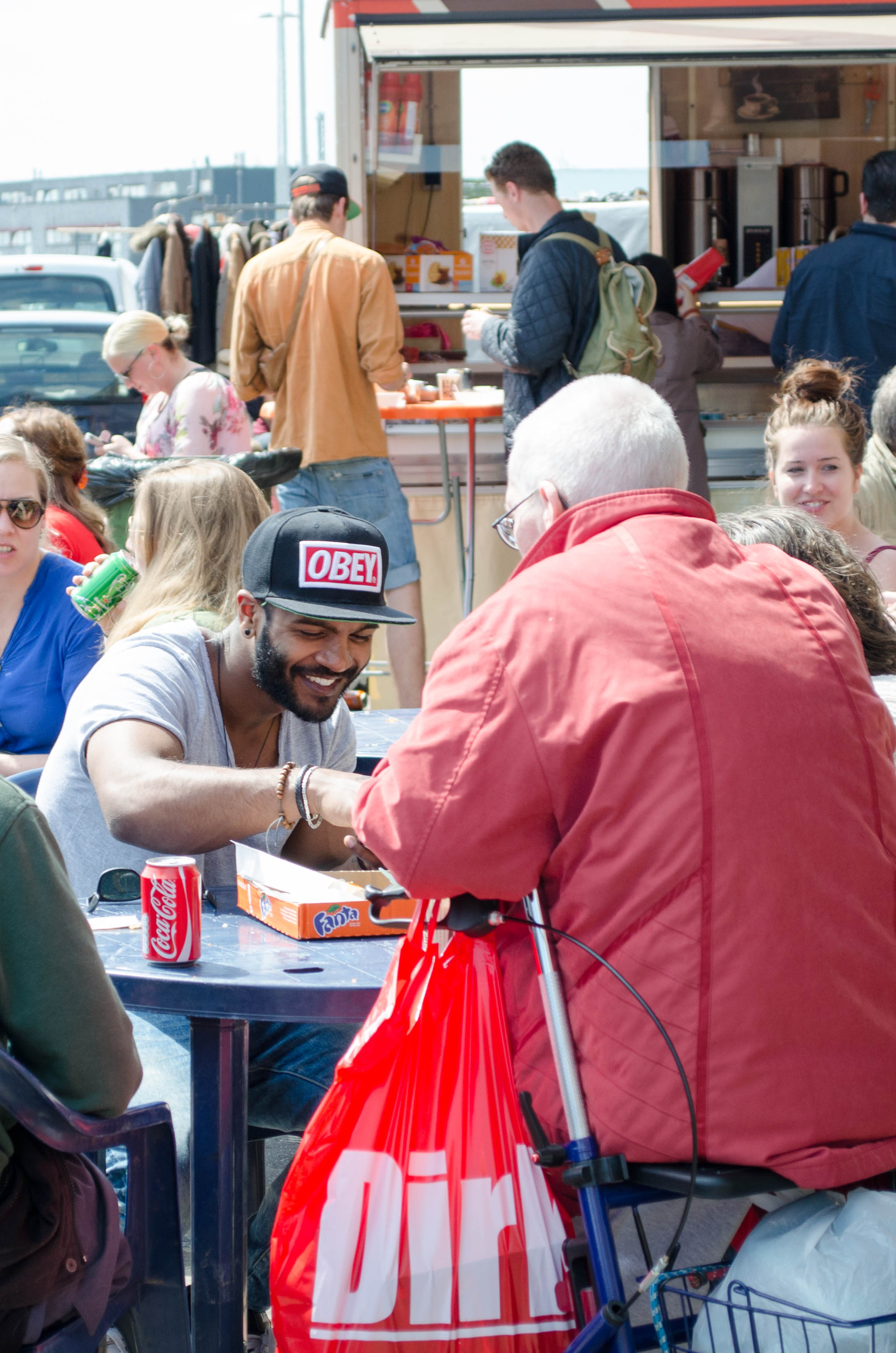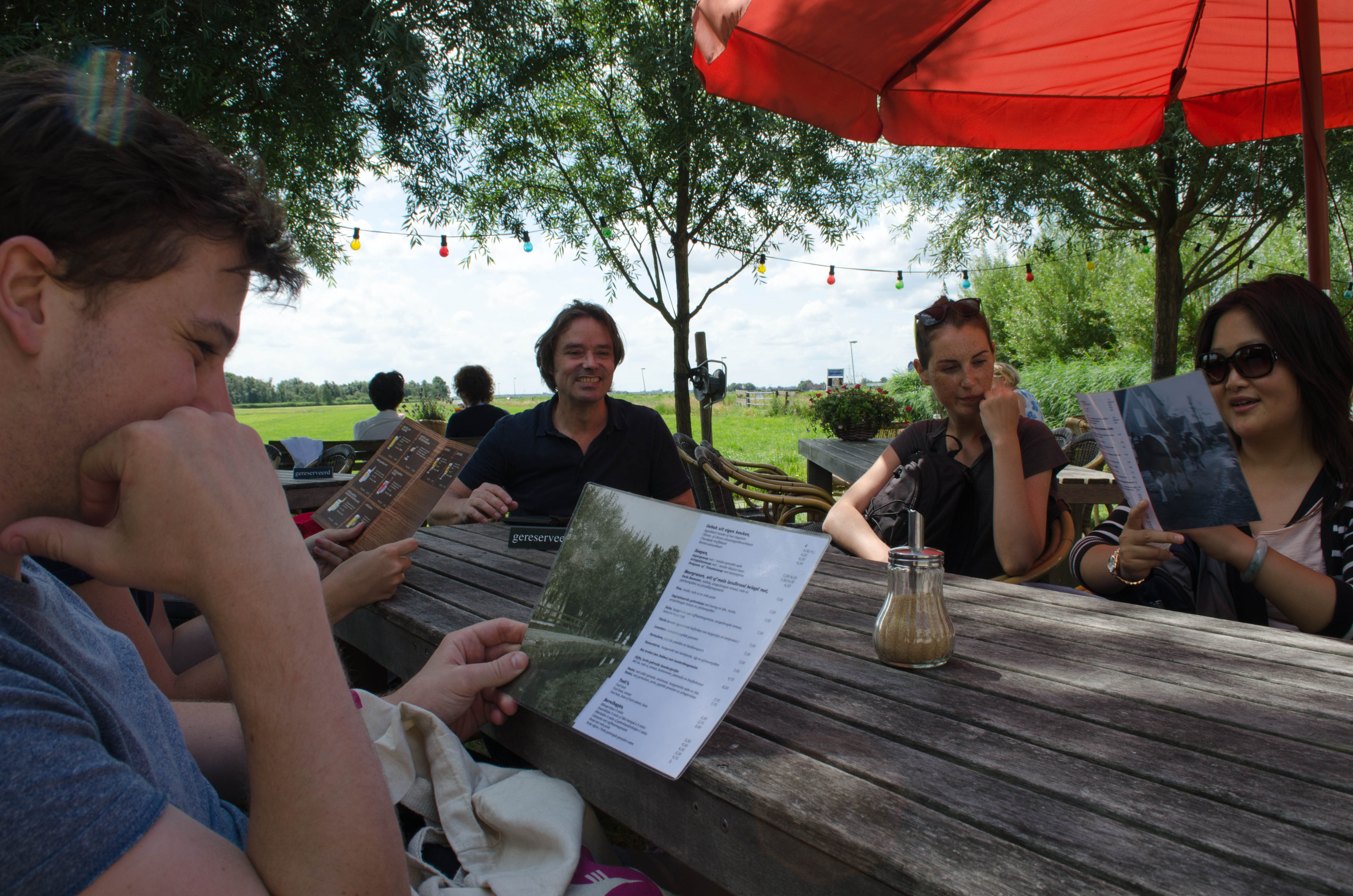 When you’re preparing to move abroad, there are a lot of places you can turn to for advice. Trenton’s company provided a relocation specialist who helped us navigate all the paperwork and legal stuff. The internet will always be an endless fount of knowledge. Trenton’s coworkers – particularly the native Dutchies – were happy to explain things about Dutch culture that were unfamiliar.
When you’re preparing to move abroad, there are a lot of places you can turn to for advice. Trenton’s company provided a relocation specialist who helped us navigate all the paperwork and legal stuff. The internet will always be an endless fount of knowledge. Trenton’s coworkers – particularly the native Dutchies – were happy to explain things about Dutch culture that were unfamiliar.
There are a few things about living in the Netherlands that you learn right away and get hammered into your head repeatedly:
- how to kiss three times in greeting and which side to start on (right cheek, left cheek, right cheek)
- when to tip (hardly ever)
- where it’s okay to drink in public (everywhere)
- how to cycle (simultaneously ultra aware of everything around you and as if you’re the only person on the road)
- how to dress like a European (a rainbow of grays and blacks)
There are also a few things you pick up about expat culture in the Netherlands, nearly all of them to do with language. And here’s what they don’t tell you: not knowing the language will make you feel like an asshole, and so will learning it.
The English fluency of Amsterdammers is a mixed blessing. Native Nederlanders make up less than half of the population of Amsterdam and the city consistently boasts one of the highest number of different nationalities. In short, everybody speaks English. It’s super convenient for tourists, but extremely difficult for the dummies trying to learn Dutch.

It was – and still is – very important to me to learn Dutch. I’m grateful to be a native English speaker, knowing that I can always fall back on it when my Dutch fails me, but at the very least, I want to make an effort to meet my host country halfway. Despite the fact that everyone can speak English, the vast majority of conversations begin in Dutch. Switching to English presents zero problems for Dutch speakers, but I still feel like I’m asking them to do all the conversational work every time it happens.
There are expats who live here for years without bothering to learn any Dutch beyond what they pick up passively from the environment. When someone speaks to them in Dutch, they don’t even bother to say “I don’t speak Dutch” in Dutch. Amsterdammers are used to it. This city has seen its fair share of manic tourists and rude expats. They expect it. But IMHO, that doesn’t mean it’s okay.
I started learning Dutch a few months before we moved here, beginning with Rosetta Stone. A few months after we arrived, I started attending group lessons and really enjoyed it. As we progressed, the later lessons were entirely in Dutch and I was delighted to discover that I could understand nearly every word the teacher said and often reply, albeit slowly and with a lot of grammar mistakes.
Most of the time, I get on just fine with my basic level Dutch. I can communicate simple things in context and 99% of the time, that’s all you need. It’s when people start veering off-script that I have problems.
I know just enough Dutch to get me into trouble. Enough to ask a question fluently and then not understand the response. Enough to kick myself when I translate the full meaning, but only after the exchange has ended.

I’m not exactly a monster, but nor am I a naturally friendly person. However, I’m an American and I grew up in Kentucky and I’ve learned that, on a global scale, this means I might as well be Ellen Degeneres. Americans are so friendly, y’all. You don’t even KNOW. I became the default phone-answerer at my last job, purely based on the fact that I’m American and thus have an innate talent for chitchat. I hate talking on the phone. I was phone-phobic for most of my childhood, and now I only use it as a kind of forced character-building exercise. But it’s all relative. What I consider basic human decency is borderline flirtation in Europe. You wonder why American women get a reputation for being sluts? It’s not because they’ll have sex with anyone, it’s because they’ll talk to strangers. They’ll beat around the bush, make small talk, ask about your day. This is not normal Dutch behavior.
So all that being said, I know that I’m probably blowing things a bit out of proportion when I feel like I’ve slighted everyone in my apartment building because I can’t muster a response longer than two words. Chances are, that’s already two more words than they expect or want. More than likely, the gap between my current language skills and being polite is a lot smaller to a Dutch person than to my Southern American eyes.
But occasionally there are the real heartbreakers, when some overly friendly Dutchie is making a sincere effort to connect and I (figuratively) slam the door in their face.
We ordered some delivery from an Indian restaurant last weekend and Trenton wrote something cheeky in the comments section about how we were celebrating his birthday. He was hoping to get something free (clearly he hasn’t spent enough time around the Dutch to appreciate the level of zuinigheid in this country). After buzzing up the delivery guy, I walked down the breezeway to meet him at the elevator. Here’s what went down:
Delivery guy: [Friendly shout that I don’t understand]!
Me: <smiles>
Delivery guy: Hallo! Je bestelling van Roti Room. [Friendly, smiley muttering that I don’t understand].
Me: <more smiling>
Delivery guy: Eet smakelijk! Fijne avond!
Me: Dank je wel! Jij ook!
I tipped him and retreated shamefully back to my apartment. As I closed the door I was able to process what he’d actually said. When he was walking down the breezeway towards me, he’d shouted “hip hip!” which is a traditional birthday-ish chant that usually ends in “hoera!” I did not say “hoera.”
After he said hello and handed me my order (bestelling) he wished me a “feestelijke verjaardag.” A festive birthday. The whole time he was grinning like an idiot, delighted that we were sharing this birthday moment together. The fact that it was Trenton’s birthday and not even mine is totally irrelevant. He was being a nice guy. I was being a chump.

Knowing just enough Dutch to make myself miserable after not sufficiently engaging with the delivery guy often presents this dilemma. In a quick exchange, it’s usually not convenient to clumsily explain that I’m learning Dutch but could they please repeat what they just said a little slower, but still in Dutch, please, because I’m trying to learn? Nope; straight to English.
I could say I speak only een beetje Dutch, but that also results in an immediate switch to English. There is no middle ground for the Dutch learner. There is none or there is fluent.
So instead, flushing my dreams of spanning the culture divide (not to mention months of language lessons) down the toilet, I just smile and add “ja,” “nee,” and “dank je wel” where appropriate, often just a few beats too late.